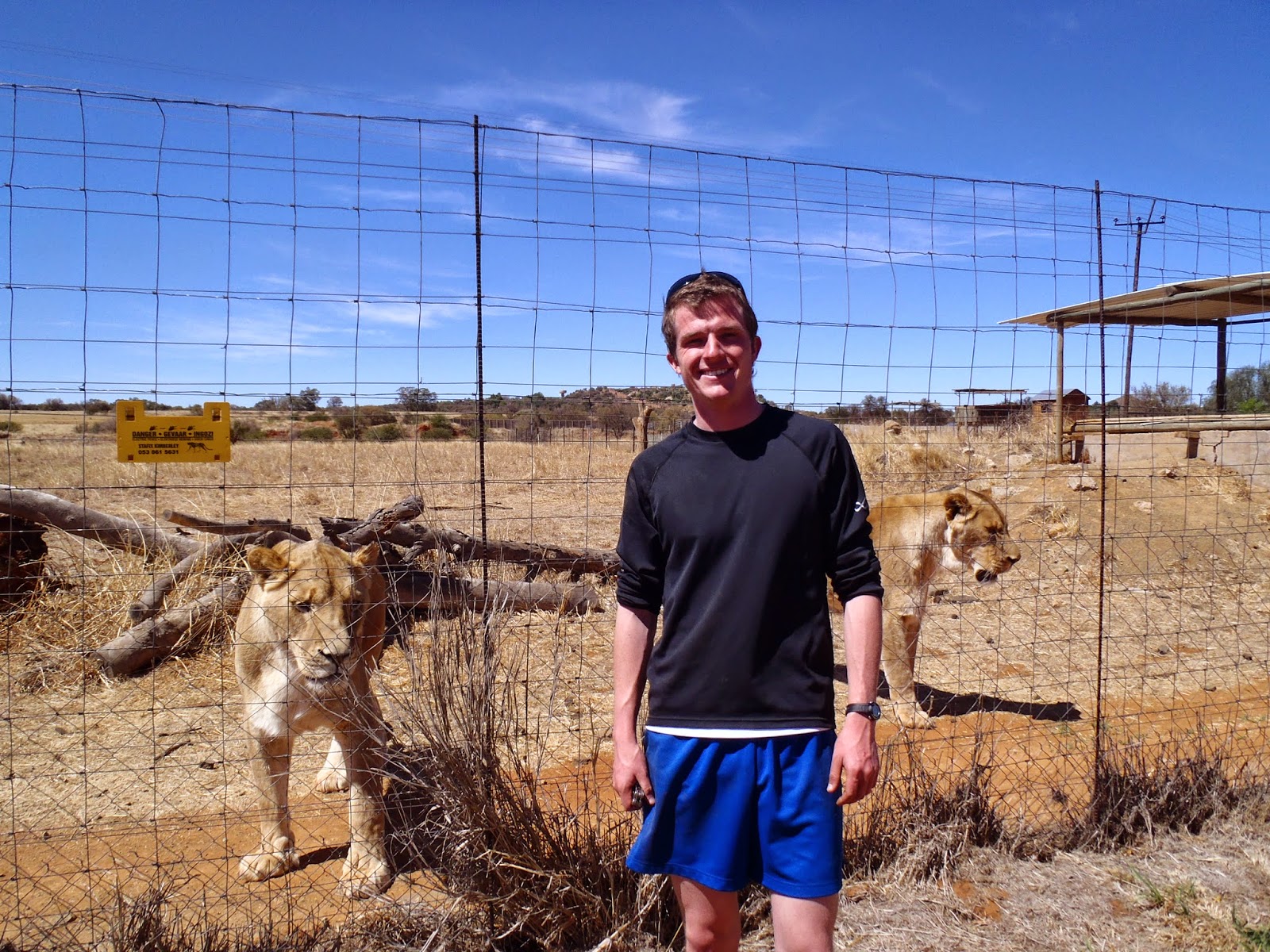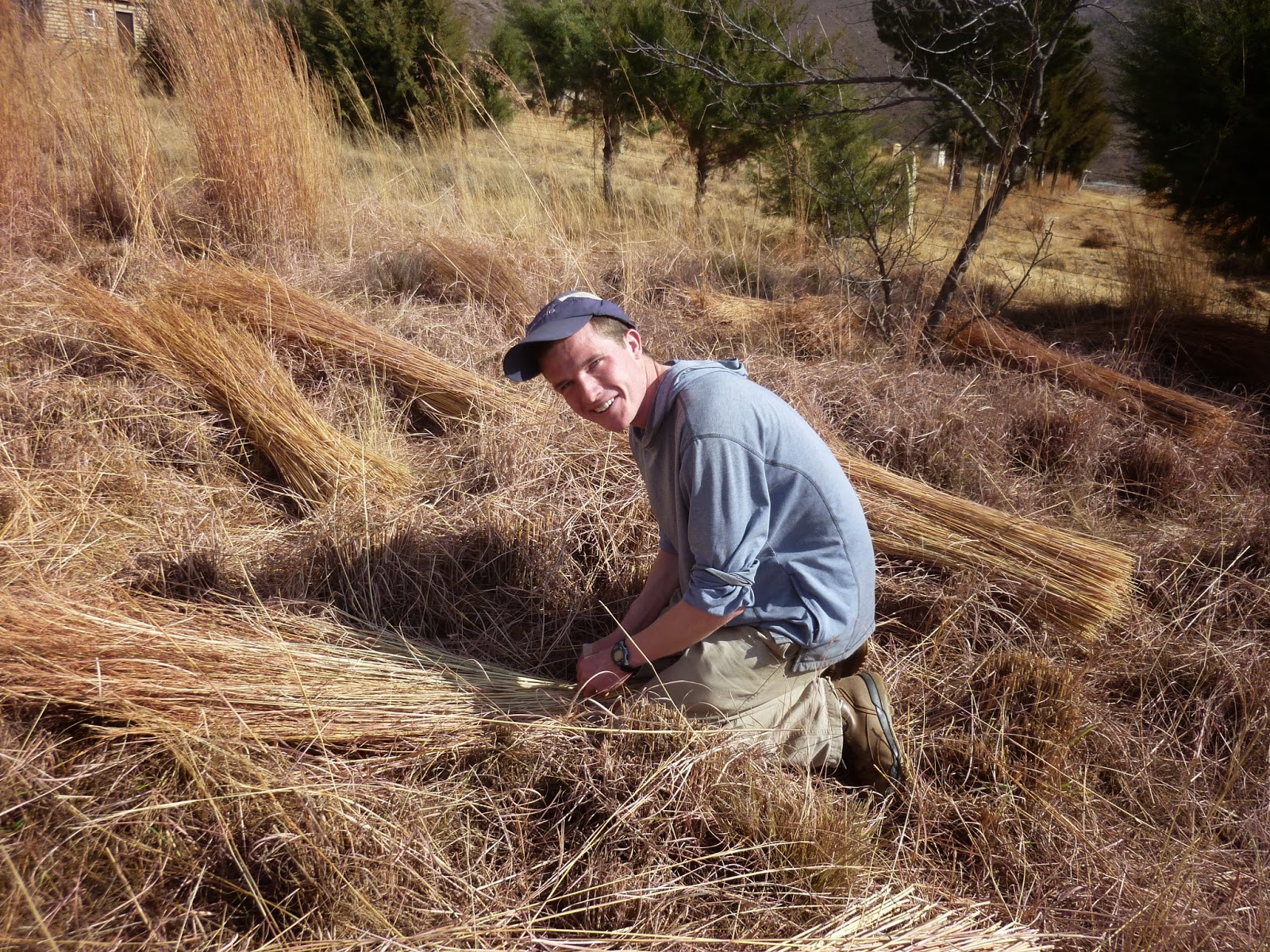I intended to write this post and put it up on June 3rd,
which was the one-year anniversary of my receiving an invitation to serve in
Lesotho. However, I have been alternatively busy and lazy (though more lazy
than busy), and did not get around to it until just now. Sorry.
I assume that a big batch of invitations has gone out to the
next crop of Education volunteers and that some of those, after a frenzied few
minutes on Wikipedia finding out what, exactly, Lesotho is, have been accepted.
Congratulations! Please bring me cheese.
As you might expect, I have a fair amount of advice for the
incoming volunteers. I have trimmed it down from its original 50,000 words into
what I hope is a useful, manageable post.
One of the biggest sources of anxiety during the lead-up to
Peace Corps service is packing. What should you bring? What should you leave at
home? Do they have toothpaste in Lesotho?
An important disclaimer: you are not going on a two-year
camping trip. If someone had told me this one year ago, I would have responded
haughtily that I already knew that, and probably would have even prefaced it
with a duh. Yet a cursory look at
what I brought, with particular respect to the large amount of quick-dry
clothing, would show that this thought was lurking somewhere beneath the
surface.
What I am trying to tell you is that not everything you
bring needs to be a burly, durable item. Bring things that you like. Yes, some
of the things you bring will break, or get worn down, or you will iron a giant
hole in them because you are not very smart. That’s fine. You will then do what people in Lesotho do when they need new pants, or shoes, or a hooded
sweatshirt that says “AUSPICIOUS TIMES FOR D-LOAD” on it: you will go to the
store and buy the needed item.
Q. Do you have any recommendations for specific things I
should bring?
A. Yes. One specific thing you should bring is a small
memento that you can use/look at every day, such as your coffee mug depicting
the noble River Otter that you bought at a gift shop in Great Smoky Mountains
National Park, because this will remind you of the spring break trip you took there
with your good friend Alec. I would caution you to not actually bring your good
friend Alec; you may think now that you will have time to feed him and take him
for walks, but things will get very busy during training and the responsibility
will fall to your host family, and they will not be happy with you young man, not one bit.
 |
| The noble River Otter. |
Another specific thing you should bring is a portable
speaker. I bought a small Philips one at Wal-Mart for about 20 dollars, and it
has been positively terrific for listening to audio-book versions of Jane
Austen novels, though I understand some people also use their speakers for
listening to music, and they have been similarly pleased. Mine can be charged
via USB and usually lasts a week or two.
 |
| When you get tired of Jane Austen, try E-40's "Tell Me When To Go" |
Yet another specific thing you should bring is a pack of wool
socks. I highly recommend Smart Wool. I bought my first three pairs of Smart
Wool socks for a trek in Philmont, New Mexico with the Boy Scouts about seven
years ago, and those same three pairs, having been in fairly constant use this
whole time, are still going strong. I also picked up a fourth pair in the
laundry room of my sophomore-year dorm after they’d been on the floor for a few
months. If the owner of those socks is reading this, I want to tell you
sincerely that you will never see those socks again.
 |
That's right, I posted a picture of a dirty, mismatched pair of socks
before I posted a picture of the outside of my house. That is
just the way my mind works. |
If you are a coffee drinker, bring a French press. I
understand that these are sold in the Pioneer Mall in Maseru, but I do not know
anyone who has bought one there and cannot assure you of the quality. You can
purchase ground coffee in Maseru, and while it’s not economical to drink it
every day, you will really appreciate it when you do make it. Ground coffee is
also easy to stuff into a care package (my Dad, after years of training methodically
packing luggage into our car for long trips, could now probably put 40 pounds
of ground coffee into an Altoids tin if he needed to).
 |
| It was a dark Vienna roast. |
There are a few other things that you should bring, such as
a good, sharp kitchen knife, photos of loved ones or loved things, and, I don’t
know, a hat or something. But these are well-documented in other people’s
packing lists and I feel no need to cover them in detail here.
A final important note: while it is true that your Peace
Corps experience will change you, these changes will probably not occur all at
once. I say this recalling that during my packing process, my mom would suggest
that I should bring, for example, some tea bags. And I would think to myself,
“Yes, I suppose I do like tea… But does Peace Corps Michael like to drink tea?
He’ll probably be too busy inspiring children to reach their full potential.
Better skip it.” But (as so often happens), my mom was right, and I do like tea
here as much as I liked it when I lived in the U.S.A.
So: pack some things you like, don’t worry about forgetting
anything because you can find most things you need here, and when it comes time
to decide whether to bring a microfiber, quick-dry towel or a full-size, fluffy
one, choose the fluffy one.










































